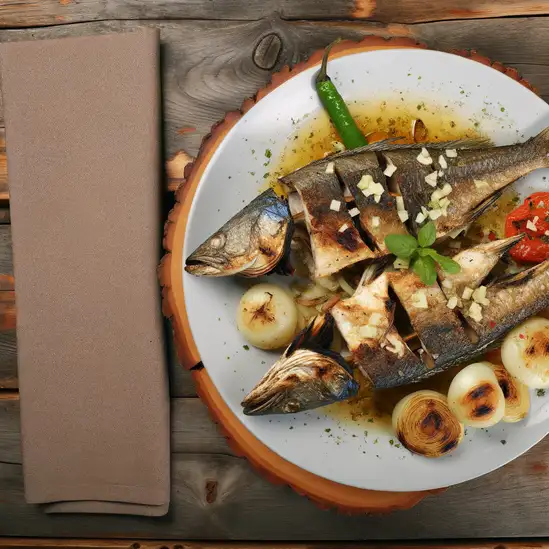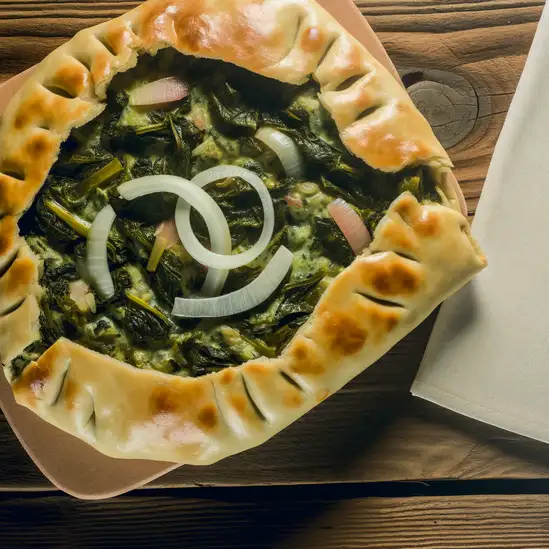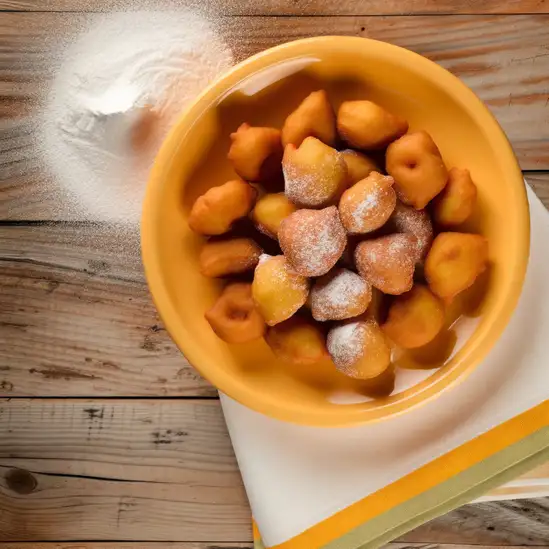



If you ever find yourself craving a place where time slows down just enough to savor every moment,Vis in Croatia is that kind of spot. The island has this laid-back,unhurried vibe that instantly wraps around you like a warm,familiar blanket. Walking through its sun-dappled streets,you’ll hear the gentle clinking of glasses from seaside taverns and the soft murmur of locals chatting in the shade of ancient stone walls. The salty breeze carries hints of pine and the sea,mingling with the irresistible aroma of freshly grilled fish and herbs from nearby gardens. Vis feels like a place where history and everyday life dance together effortlessly. The town’s pastel-colored houses lean into narrow alleys,their shutters flung open to catch the afternoon light. You can almost taste the island’s stories in the air—stories of fishermen,artists,and travelers who’ve all left their mark. The local markets burst with vibrant colors:ripe figs,olives glistening with oil,and homemade cheeses that melt on your tongue. Sitting at a waterfront café,sipping a glass of crisp local white wine,you’ll watch fishing boats bob gently on the turquoise water,feeling completely at ease. What makes Vis truly special is its authenticity. It hasn’t been overrun by tourists,so you get to experience Croatia’s island life as it’s meant to be—simple,genuine,and deeply connected to nature. Whether you’re exploring hidden coves,diving into crystal-clear waters,or sharing a meal with friendly locals,Vis invites you to slow down,breathe deeply,and fall in love with the rhythm of the Adriatic.
The information on this page is currently being reviewed by Tripkliq and should be used as a guide only
Eng word: Hello
Eng pronunciation: Bohk
Local language: Bok
Eng word: Goodbye
Eng pronunciation: Doh-vee-jen-ya
Local language: Doviđenja
Eng word: Thank you
Eng pronunciation: Hvah-lah
Local language: Hvala
Eng word: How much
Eng pronunciation: Koh-lee-koh
Local language: Koliko
Eng word: Toilet
Eng pronunciation: Toh-ah-let
Local language: Toalet
Eng word: Help me
Eng pronunciation: Poh-moh-zee mee
Local language: Pomozi mi
Eng word: Yes
Eng pronunciation: Dah
Local language: Da
Eng word: No
Eng pronunciation: Neh
Local language: Ne
Eng word: Excuse me
Eng pronunciation: Oh-proh-stee-teh
Local language: Oprostite
Vis, known as Issa in ancient times, was founded by the Greeks from Syracuse around 397 BC, making it one of the oldest urban settlements in Croatia.
After the Greeks, the Romans took control of Vis in the 1st century BC. The island became an important military and trade center in the Adriatic Sea.
Built in the 16th century, St. Jerome's Church is a beautiful example of Renaissance architecture and is located in the town of Komiža on the island of Vis.
During the Napoleonic Wars, Vis served as a strategic British naval base. The British built several fortifications on the island, some of which can still be seen today.
In 1866, the Battle of Vis took place between the Austrian and Italian navies. The Austrians emerged victorious, and the battle is considered a significant event in naval history.
During World War II, Vis was a key hideout for the Yugoslav Partisans. The island's rugged terrain and numerous caves provided excellent cover and strategic advantage.
Housed in the 19th-century Austrian fortress, the Vis Archaeological Museum showcases artifacts from the island's Greek, Roman, and medieval periods.
The tradition of winemaking on Vis dates back to ancient Greek times. The island is renowned for its local wines, particularly the white wine made from the Vugava grape.
Built by the British in 1813, Fort George is a well-preserved fortress that offers stunning views of the Adriatic Sea and serves as a popular venue for events and concerts.
In Vis, the most common Power Adaptor is Type C, Type F.



A traditional Croatian dish made by slow-cooking meat and vegetables under a bell-like lid, often served with potatoes.

Grilled fish, typically prepared with local catch, seasoned with olive oil, garlic, and herbs, showcasing the fresh seafood of the region.

A savory pie filled with Swiss chard and onions, encased in thin dough, often enjoyed as a snack or appetizer.

Small, sweet doughnuts flavored with citrus and often sprinkled with powdered sugar, popular as a dessert or snack.

A rich beef stew marinated in vinegar and spices, slow-cooked with prunes and served with gnocchi or homemade pasta.
If you ever find yourself wandering through Split,it’s like stepping into a living,breathing storybook where ancient history and vibrant modern life dance together effortlessly. The moment you stroll along the Riva promenade,the salty breeze from the Adriatic mingles with the aroma of fresh espresso and grilled seafood wafting from nearby cafés. Locals chat animatedly in the sun-dappled squares,their laughter blending with the distant hum of boats bobbing gently in the harbor. There’s a laid-back energy here that feels both timeless and alive,inviting you to slow down and soak it all in.
Split’s heart beats strongest in Diocletian’s Palace,a sprawling Roman fortress that’s less a museum and more a neighborhood where people live,shop,and gather. Walking through its ancient stone alleys,you’ll catch glimpses of colorful markets,artisan shops,and cozy taverns tucked into centuries-old walls. At night,the city transforms as lanterns flicker on,and the sound of live klapa singing—traditional a cappella harmonies—drifts through the air,wrapping you in a warm,soulful embrace.
What really makes Split unforgettable is how effortlessly it blends the old with the new. You can savor a plate of fresh octopus salad while watching fishermen haul in their catch,then wander to a rooftop bar for a cocktail as the sun sets behind the islands. It’s a place where every corner tells a story,every meal feels like a celebration,and every moment invites you to become part of its ongoing tale.
If you ever find yourself wandering through the sun-drenched streets of Dubrovnik,you’ll immediately feel like you’ve stepped into a living storybook. The city’s ancient stone walls rise proudly against the sparkling Adriatic,and as you stroll along the marble-paved Stradun,the salty sea breeze mingles with the scent of fresh pine and blooming bougainvillea. There’s a rhythm here—a gentle hum of life where history and modern charm dance together effortlessly.
Dubrovnik’s character is woven into every corner:the clatter of café cups,the murmur of locals chatting in cozy taverns,and the distant call of seagulls overhead. You can almost taste the city in the air—briny and fresh,with hints of grilled seafood and ripe figs from the markets. Sitting at a seaside restaurant,watching the sun dip behind the fortress walls,you’ll savor dishes bursting with Mediterranean flavors,paired with a glass of crisp Croatian white wine.
What makes Dubrovnik truly special is how it balances its rich past with a vibrant present. The city’s narrow alleys invite exploration,revealing tucked-away galleries,artisan shops,and lively squares where music spills out into the streets. Whether you’re tracing the footsteps of ancient mariners or simply soaking up the golden light on a quiet terrace,Dubrovnik feels like a warm embrace—inviting,timeless,and utterly unforgettable.
Imagine stepping into a sun-drenched town where lavender-scented breezes mingle with the salty kiss of the Adriatic Sea—that’s Hvar for you. From the moment you wander through its ancient stone streets,there’s a relaxed yet vibrant energy that wraps around you like a warm embrace. The sunlight bounces off terracotta rooftops,and the sound of laughter spills out from cozy cafés where locals sip espresso and chat animatedly. It’s a place where history and modern life dance effortlessly together.
As you stroll along the harbor,sleek yachts bob gently beside fishing boats,and the air carries the faint aroma of grilled seafood and fresh herbs. The town’s medieval walls and the imposing fortress overlooking the bay tell stories of centuries past,while the lively markets burst with ripe figs,olives,and sun-ripened tomatoes. At sunset,the sky blazes in shades of pink and gold,and the waterfront buzzes with music drifting from open-air bars,inviting you to linger just a little longer.
What makes Hvar truly special is its blend of authenticity and joie de vivre. It’s not just a place to see but a place to feel—whether you’re savoring a glass of local Plavac Mali wine,exploring hidden coves by boat,or simply watching the world go by from a shaded terrace. Hvar’s charm lies in its ability to make you slow down,breathe deeply,and soak in the simple pleasures of life by the sea.
If you ever find yourself wandering the Dalmatian coast,Zadar is one of those places that sneaks up on you with its quiet charm and unexpected magic. The moment you step onto its ancient stone streets,there’s this warm,timeless feeling—like the city is gently humming a tune just for you. The salty breeze from the Adriatic mingles with the scent of fresh pine and blooming jasmine,wrapping around you as you stroll along the waterfront. It’s a place where history isn’t just in museums; it’s alive in the crumbling Roman ruins,the medieval churches,and the lively squares where locals gather to chat and sip coffee.
What really sets Zadar apart is its playful spirit. You’ll hear it in the waves as they dance through the Sea Organ,an extraordinary installation that turns the sea’s movement into haunting melodies. And just a few steps away,the Sun Salutation lights up the night with a mesmerizing display of colors,making the waterfront feel like a celebration of nature and art. Grab a seat on the stone benches,watch the sun dip below the horizon,and you’ll understand why Alfred Hitchcock once called Zadar the most beautiful sunset in the world.
The city’s vibe is relaxed but vibrant,with cozy konobas serving up fresh seafood and local wines that taste like the essence of the region. Whether you’re wandering through the bustling market,exploring narrow alleys,or simply soaking in the views from a café terrace,Zadar invites you to slow down,breathe deeply,and savor every moment.
Imagine stepping into a place where every narrow cobblestone street whispers stories from centuries past,and the salty breeze from the Adriatic Sea mingles with the scent of fresh pine and blooming bougainvillea. That’s Trogir for you—a charming,sun-drenched town that feels like a living museum but with a lively,warm heartbeat. As you wander through its maze of medieval alleys,you’ll catch glimpses of ancient stone buildings,ornate churches,and cozy cafés spilling out onto tiny squares where locals sip espresso and chat animatedly.
The vibe here is effortlessly relaxed yet rich with history and culture. You can hear the gentle lapping of waves against the harbor,the distant call of seagulls,and the soft murmur of conversations in Croatian,Italian,and English. At sunset,the golden light bathes the old town in a magical glow,making it the perfect time to savor a plate of fresh seafood—imagine tasting the briny sweetness of grilled fish paired with a crisp local white wine while watching fishing boats bob gently in the harbor.
What makes Trogir truly special is how it balances its deep-rooted heritage with a welcoming,unpretentious spirit. It’s not just a place to see but a place to feel—where history,nature,and everyday life blend seamlessly. Whether you’re exploring the fortress walls,browsing artisan shops,or simply sitting by the water with gelato in hand,Trogir invites you to slow down and soak in its timeless charm.
If you wander into Šibenik,you’ll immediately feel like you’ve stepped into a place where history and the sea have been quietly chatting for centuries. The city’s old stone streets,worn smooth by footsteps over hundreds of years,invite you to slow down and soak in the atmosphere. There’s a gentle hum of life here—fishermen unloading their catch,the clinking of glasses from cozy waterfront cafés,and the distant call of seagulls mingling with the soft splash of waves against the harbor walls.
What makes Šibenik truly special is its blend of rugged Adriatic charm and rich cultural layers. The sun warms the limestone walls,making them glow golden in the late afternoon,while the scent of pine trees drifts in from the nearby hills. You can’t miss the stunning Cathedral of St. James,a masterpiece carved entirely from stone,where every detail tells a story. Wander through the narrow alleys,and you’ll find vibrant markets bursting with fresh figs,olives,and local cheeses that taste like sunshine.
Evenings in Šibenik have a relaxed,almost magical feel. The city lights flicker on,reflecting in the calm waters,and the air fills with the aroma of grilled seafood and herbs. Locals gather in lively taverns,sharing laughter and stories over glasses of crisp Croatian wine. It’s a place where time slows just enough for you to savor the simple pleasures—good food,warm smiles,and the endless blue horizon.
Tourists renting boats may encounter hidden fees or be charged for pre-existing damages. Inspect the boat thoroughly and document its condition before renting.
Unlicensed currency exchange offices or individuals may offer poor exchange rates or charge high fees. Use official banks or ATMs for currency exchange.
Scammers may post fake rental listings online, targeting tourists looking for accommodations. Always book through reputable platforms and verify the property before payment.
Unlicensed individuals may pose as tour guides and charge high fees for subpar or inaccurate tours. Book tours through reputable agencies.
Some taxi drivers may charge tourists inflated prices, especially for short distances or late-night rides. Always agree on a price beforehand or ensure the meter is used.
Some individuals may pose as parking attendants and charge tourists for parking in free or public areas. Verify parking fees and use official parking lots.
Some restaurants may add hidden fees or inflate bills, especially for tourists. Check the menu prices carefully and review the bill before paying.
The possession, use, and distribution of illegal drugs are strictly prohibited in Vis, Croatia. Croatia has stringent drug laws, and violations can result in severe penalties, including fines and imprisonment. Tourists should avoid any involvement with illegal drugs to ensure a safe and trouble-free visit.
In Vis, Croatia, smoking is generally allowed in outdoor public spaces, but it is prohibited in enclosed public areas such as restaurants, bars, and public transportation. Some establishments may have designated smoking areas. It is always a good idea to look for no-smoking signs and to ask if you are unsure.
Vaping is subject to similar regulations as smoking in Vis, Croatia. It is prohibited in enclosed public spaces, including restaurants, bars, and public transportation. Vaping in outdoor areas is generally allowed, but it is advisable to be considerate of others and to check for any specific local restrictions.
What are other people saying about Vis?
Recent Social posts about Vis
There is nothing to show you for now.